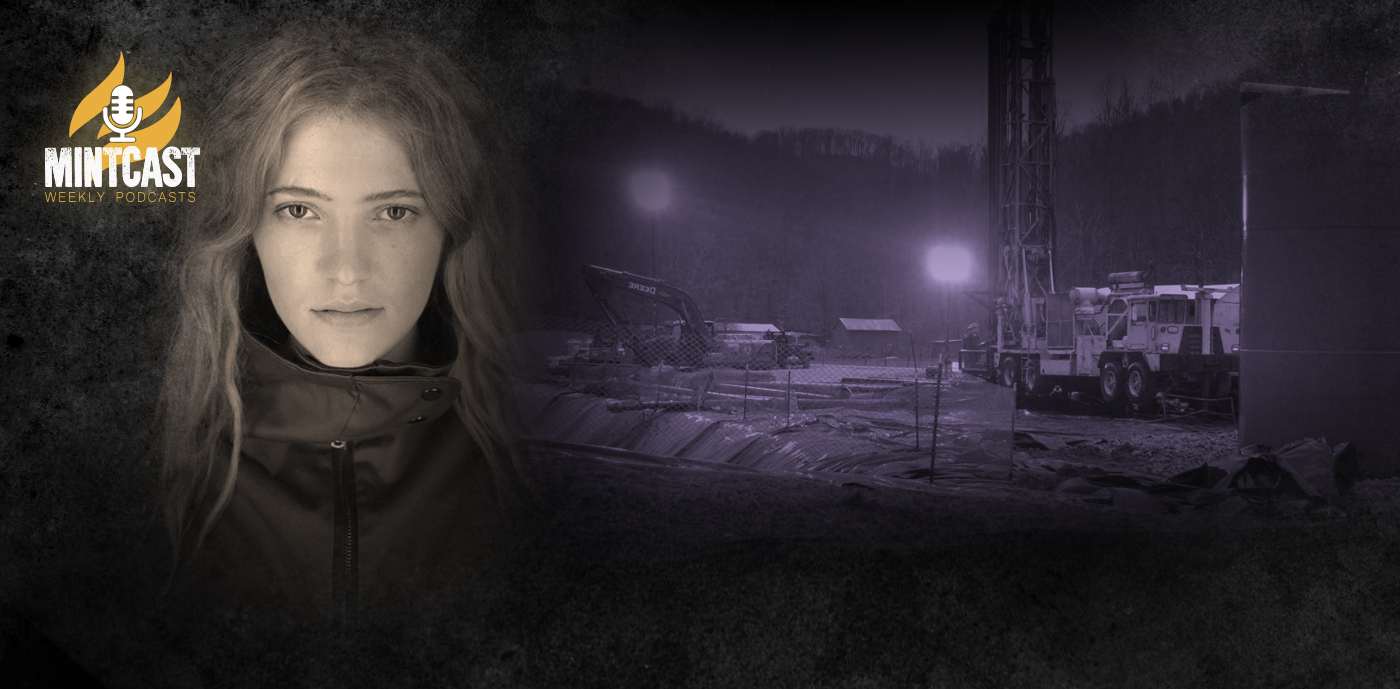Welcome to MintCast — an interview series hosted by Mnar Muhawesh Adley featuring dissenting voices the establishment would rather silence.
In this episode, we are joined by activist, journalist and documentary filmmaker Eleanor Goldfield whose new documentary, “Hard Road of Hope,” shares the stories of people in West Virginia and their struggle against the corporate state.
West Virginia. It’s been dubbed as a throwaway state with throw away people.
It’s a region in America often brushed under the rug in mainstream corporate media but its significance is major: this state and its story are a microcosm of U.S. exploitation of working class Americans at the hands of the corporate state, most notably the oil, gas and coal industry.
Journalist Chris Hedges describes its coal-rich mountains as an economic and ecological sacrifice zone to capitalism, one of the areas richest in resources in all of America, yet filled with some of the poorest and most powerless people in the country. West Virginia is home to the opioid crisis, theft of indigenous land, environmental disaster, water and soil contamination, oil pipelines and extraction, coal mining, fracking, and slavery.
“Hard Road of Hope,” tells the story of the poorest state in the union by per median household income, the ecological damage done by extractivist corporations plundering the region’s mineral resources, and how communities are coming together to fight back. Goldfield’s debut feature-length documentary is a sad, angering, and inspiring account.
Of the film, Paul Corbit, President of the ecological group Keeper of the Mountains said:
So many have come to West Virginia to tell our story- some have done so better than others. But Eleanor’s film is one of the very few that told our story in our own words; succinctly, and with a clarity and dignity that can’t be ignored. Our story is yet another in a long line of wake up calls happening around the world. Eleanor’s film sounds that alarm in a way that can’t be denied.”
Today, we discuss the reasons Goldfield chose to make a documentary about West Virginia, the environmental devastation that huge energy companies have caused, and the community’s fight back against the corporate state.
This program is 100 percent listener supported! You can join the hundreds of financial sponsors who make this show possible by becoming a member on our Patreon page.
Subscribe to this podcast on iTunes, Spotify and SoundCloud. Please leave us a review and share this segment.
Mnar Muhawesh is founder, CEO and editor in chief of MintPress News, and is also a regular speaker on responsible journalism, sexism, neoconservativism within the media and journalism start-ups.
The post Podcast: West Virginia’s Exploited Communities Stand Up to Coal, Oil & Gas Giants appeared first on MintPress News.
